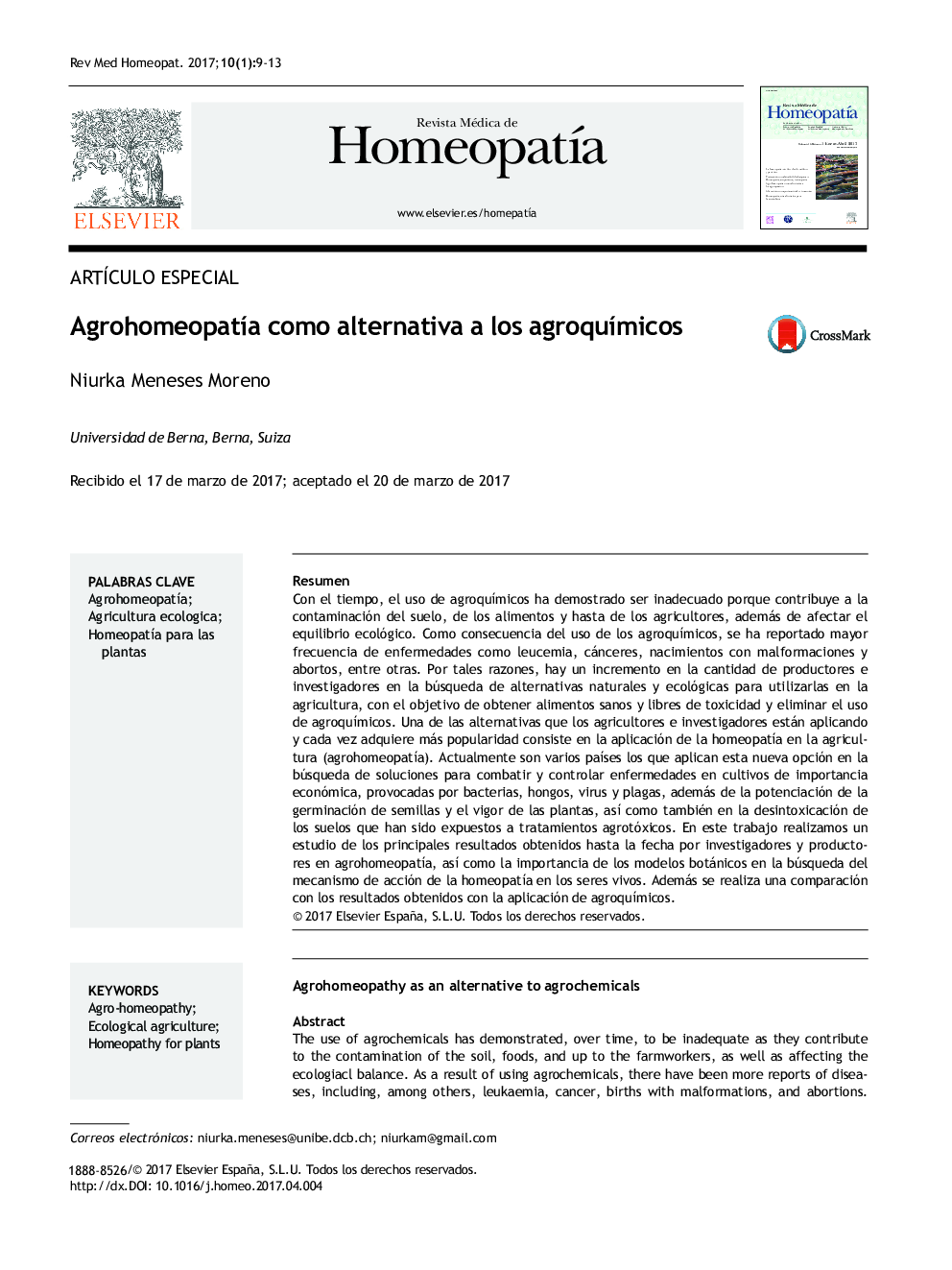| Article ID | Journal | Published Year | Pages | File Type |
|---|---|---|---|---|
| 5635878 | Revista Médica de Homeopatía | 2017 | 5 Pages |
Abstract
The use of agrochemicals has demonstrated, over time, to be inadequate as they contribute to the contamination of the soil, foods, and up to the farmworkers, as well as affecting the ecologiacl balance. As a result of using agrochemicals, there have been more reports of diseases, including, among others, leukaemia, cancer, births with malformations, and abortions. For these reasons, there has been an increase in the number of producers and researchers searching for natural and ecological alternatives to be used in agriculture, with the aim of obtaining healthy and toxin free foods and eliminating the use of agrochemicals. One of the alternatives that the farmers and researchers are applying, and is becoming increasingly popular, consists of applying Homeopathy in agriculture (Agro-homeopathy). Several countries are currently applying this new option in the search for solutions to combat and control diseases in crops of economic importance, caused by bacteria, fungi, viruses and plagues, as well as boosting seed germination and the vigour of the plants. This also includes decontamination of the soils that have been exposed to agro-toxic treatments. In this work, as study is presented on the main results obtained up until now by the researchers and producers in Agro-Homeopathy, as well as the importance of botanical models in the search to find the mechanism of action in homeopathy in humans. A comparison is also made between the results obtained and with the application of agrochemicals.
Keywords
Related Topics
Health Sciences
Medicine and Dentistry
Complementary and Alternative Medicine
Authors
Niurka Meneses Moreno,
